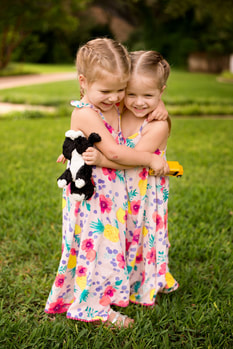 Azine Graff, PsyD It seems to happen out of nowhere... you become the primary caregiver in the family. You're the one who chooses ideas for meals, picks out clothes and dresses the kids and takes them out on errands. You become their go-to parent for questions, ouchies, and so much more. Before you know it, you feel exhausted and depleted, and you are wondering how this came to be. You wonder if biology had anything to do with your mental load or if this was society's influence on traditional masculine and feminine roles. You wonder how your egalitarian relationship took a turn once you had a child. Many relationships continue in this way. Parents feel exhaustion and perhaps resentment, due to a lack of equanimity in the relationship. But it doesn't have to stay like this. You can take some steps towards the life you pictured having. A life where you are working with your partner instead of feeling the weight of doing everything. Continue reading on Mother.ly  Azine Graff, PsyD I clearly remember listening to my then 2-year-old daughter as she was comforting her doll. She sounded out the cries of her doll and followed it with, “I got you. You’re safe.” My heart was melting as she gave her doll the same care I gave her when she would cry from a scraped knee or when feeling frightened. I realize now that this is a form of empathy, as she was empathizing with her “crying” baby and using what had comforted her when she had cried. As parents we often get caught up with academics—feeling that children must learn how to read early on and solve math problems to succeed—but we forget about the life skills that are needed and not learned in a school book. Empathy is one of them. Some might think that an empathic child would just be a sensitive child wearing their heart on their sleeve. Click here to read the full article published on Motherly. |
Categories
All
Disclaimer: Information and resources provided on the internet by Harmony in Parenting - A Psychology Center, Inc. does not constitute psychotherapy, a replacement for a therapeutic relationship, or a substitute for mental health or medical care. If having a psychiatric emergency, please visit your nearest emergency room or call 911. |
NOW OFFERING ONLINE THERAPY
(818) 810-7079 | 16550 Ventura Blvd UNIT 318 Encino, CA 91436
Harmony in Parenting - A Psychology Center, Inc.
16550 Ventura Blvd UNIT 318 Encino, CA 91436
(818) 810-7079
Harmony in Parenting offers therapy for children, parents, and adults residing in Encino, Sherman Oaks, Studio City, Tarzana, and Woodland Hills.
Telehealth and video therapy services are available for residents of California.
© 2024 HARMONY IN PARENTING - A PSYCHOLOGY CENTER, INC. ALL RIGHTS RESERVED.
DISCLAIMER PRIVACY POLICY NOTICE OF PRIVACY PRACTICES TERMS OF SERVICE GOOD FAITH ESTIMATE NOTICE
